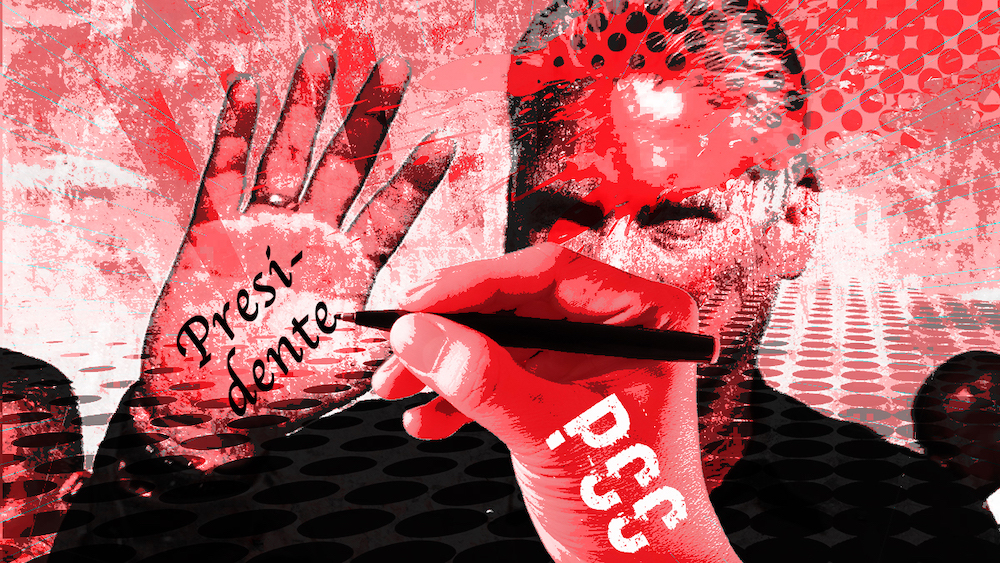On April 19, 2018, at the close of the National Assembly of Popular Power (ANPP), the First Secretary of the Communist Party of Cuba (PCC) announced a new Constitution and said that there would be no "change to our strategic objective". A few days later, Miguel Díaz-Canel, then president of the Councils of State and Ministers, announced that the reform would not imply changes to the political system, that the "irrevocable" character of socialism in Cuba would be maintained, and that the PCC would exercise control over the rest of the State's agencies.
Timeline
The failure of the famous Sugar Cane Campaign, in 1970, and the crisis generated by the collapse of the Soviet Union, in 1989, demonstrated the unfeasibility of a model based on totalitarianism, and wishful thinking, and it dependence on foreign subsidies. In neither case was reform introduced aimed at fostering an autonomous and efficient economy.
The replacement of Soviet subsidies with Venezuelan ones in 1999 put a damper on the few constructive measures that had revived the economy to some degree. In 2008 the worsening of the crisis forced the implementation of a modicum of measures aimed at reviving the economy, though retaining totalitarianism. Finally, in 2019, the Party-State-Government, ignoring historical failures and the lessons they should have learned from them, chose, as the only way to retain power, to buttress the totalitarian model with a new Constitution.
In the absence of the citizenry and popular sovereignty, and with a single political party, constitutionally declared "the organized vanguard of the Cuban nation," and without even consulting the people, the secretary of the PCC and the president of the State Council dictated, in advance, what could be changed and what could not. Thus was the Constitutional reform undertaken.
For the drafting a commission (not directly elected by the people) was appointed, composed of 33 deputies, all members of the PCC, which represented a regression with respect to the Constitution of 1940, for whose drafting the Cubans chose, freely and directly, 77 representatives.
According to the daily Granma, the commission, which began its work on June 3, 2018, met for two weeks, and on July 2 presented its Draft to the VII Plenary Session of the CC, PCC and the State Council. Then, in three days –from July 18 to 20– the representatives individually studied the document, and one session was dedicated to fielding their questions.
That is, in less than one month of work the draft document was composed and approved, unlike in 1940, when nobody determined in advance what could not be changed, and the delegates did not go to just study it and have their questions answered, but rather gathered for four months, as genuine legislators.
Reinforcement
With a view to conserving power, the first complementary law that was issued under the new Constitution was Electoral Law 127, of August, 2019, designating, on 10 October, the officials who were to occupy the main posts in the structure of the State.
The Constitution of the Republic states that "the ANPP represents the entire people, expresses its sovereign will, and its deputies are elected by the free, equal, direct and secret vote of the electors." However, the Electoral Law, resting on a rung inferior to the Constitution, calls for the creation of candidate commissions, comprised of representatives of the mass organizations (constitutionally subordinated to the PCC), that are to draw up and present the candidacies for the Assemblies of Popular Power. This means that the sovereignty of the people is displaced to these organizations.
Consequently, the National Candidacy Commission asked these organizations' highest bodies for candidacy proposals. As a result, the president and vice president of the Republic were appointed by the ANPP, to which they are beholden. Hence, Miguel Díaz-Canel, in his capacity as president, lacks real power. Above him are the ANPP and the State Council, presided over both by Esteban Lazo Hernández, with constitutional power to interpret the law and, if necessary, depose him.
This explains why the key trait of the members making up the State Council is not competence, or popularity, but rather the loyal execution of surveillance and control functions, to keep the country tied to its past, as the only way to conserve the power.
The average age of the members of the State Council is 51, which can give one the false impression that they constitute a new force. As fidelity to the old is their essential characteristic, the new faces in the body represent nothing. Among them there are five members of the Political Bureau of the PCC, six leaders of the political and mass organizations, the director of the newspaper Juventud Rebelde, and other Popular Power officials, directors and heads of organizations, who demonstrate no independence, and whose sole role is to represent and sustain the status quo.
Neither the president of the Republic, nor the president of the ANPP and the State Council, are independent. The PCC, proclaimed as the main "governing force of the State and society", and, within the PCC, its Political Bureau, is where power really lies. Five of the members of the State Council and six senior military officers are members of the Political Bureau, who, together with other senior officers, control most of the Cuban economy. Apparently fortification attempts have succeeded.
Stopgap Actions
Depending on changing national and international scenarios, such stopgap measures can be effective, but only for a time. In the case of Cuba, I would say that a fairly short time, as the worsening of the crisis, the model’s defectiveness, growing discontent, the on-going exodus of young people, and the impossibility of overcoming the crisis with the same model that generated it, will ultimately overturn a hopeless and damaging attempt to anchor Cuba to its past.
History is made by men, who can hasten or delay events for a certain time. But they cannot avert the inexorable. And Cuba case will be no exception. Therein lies the futility of efforts to reinforce the Constitution.
